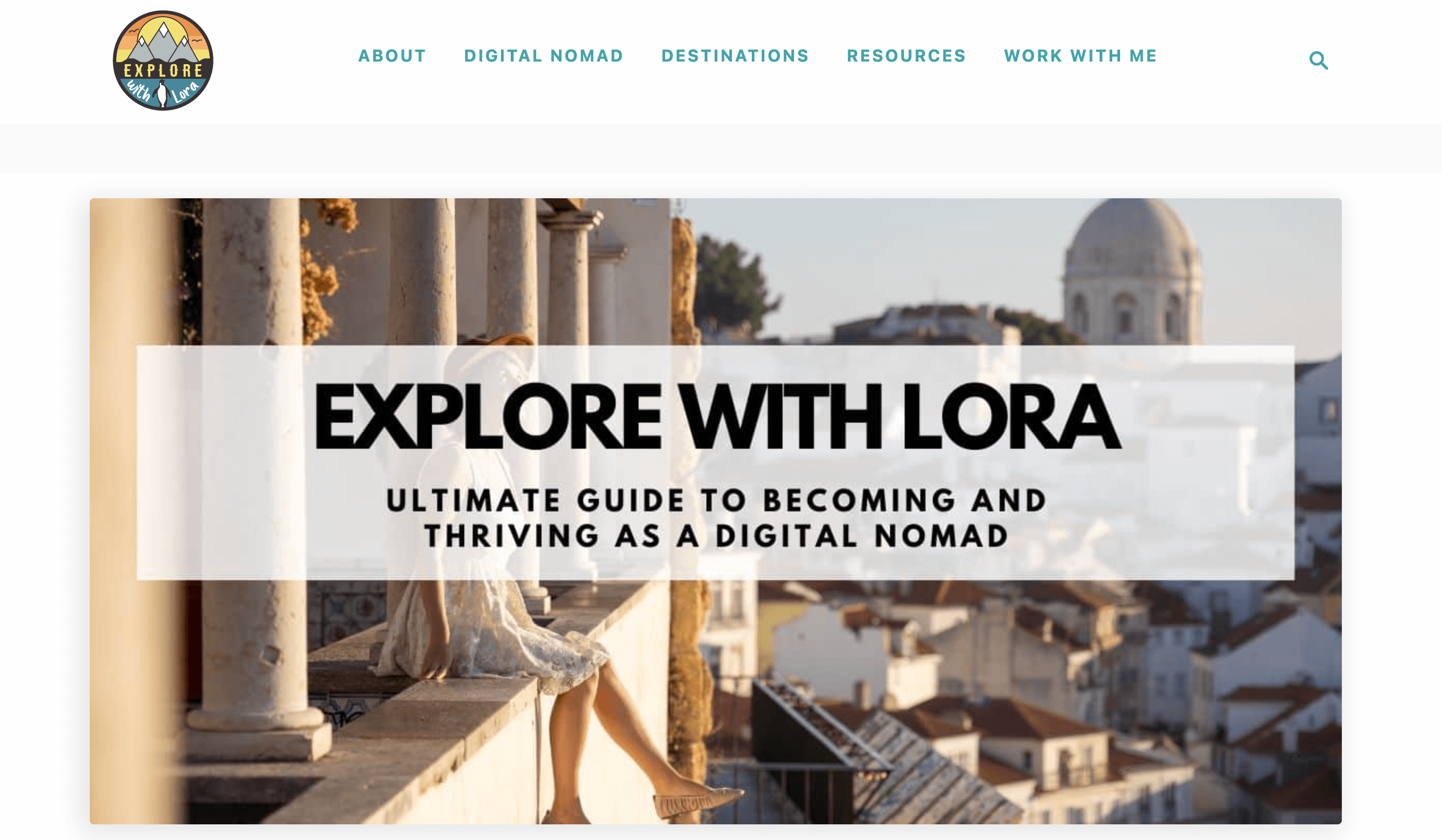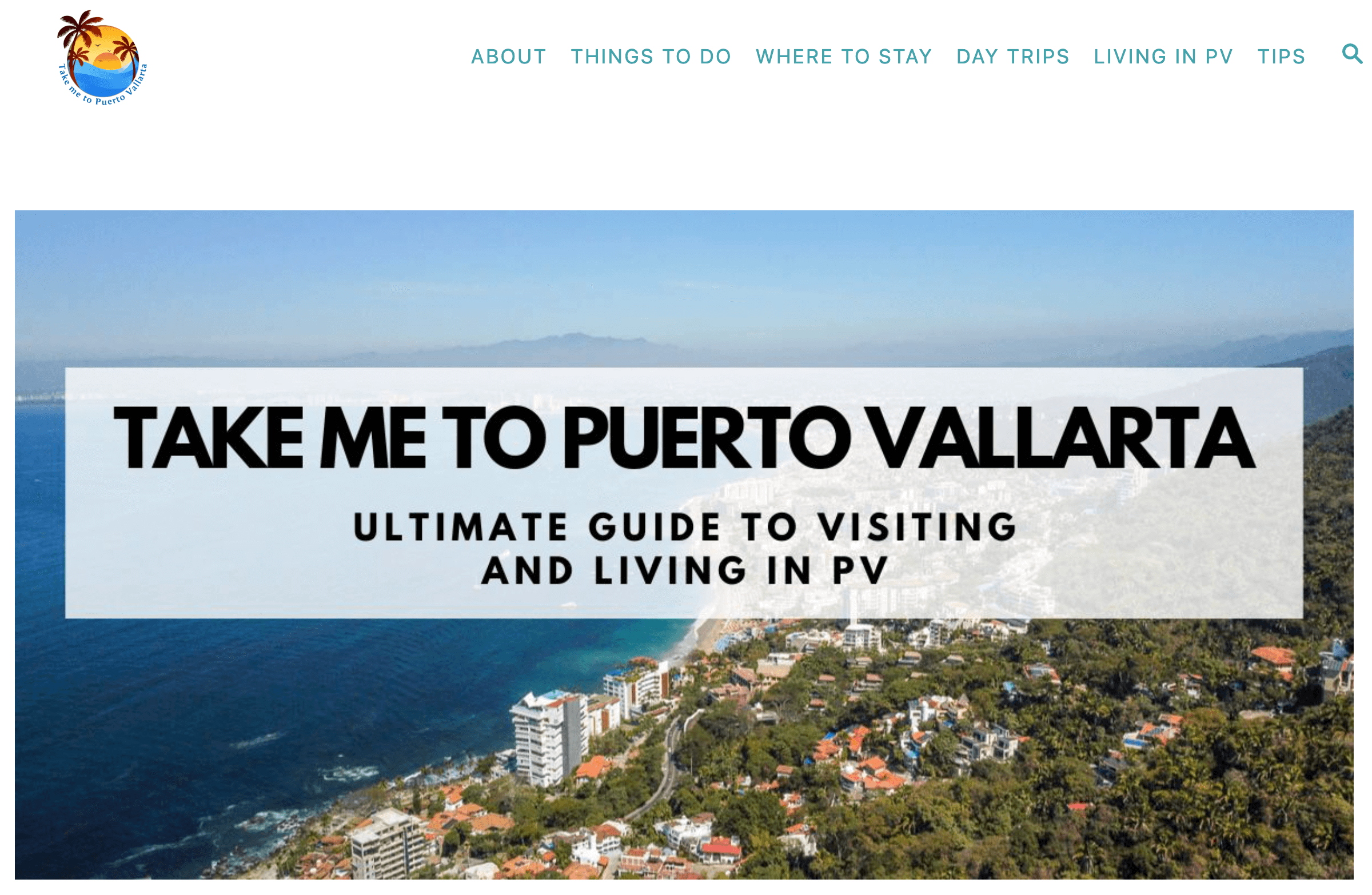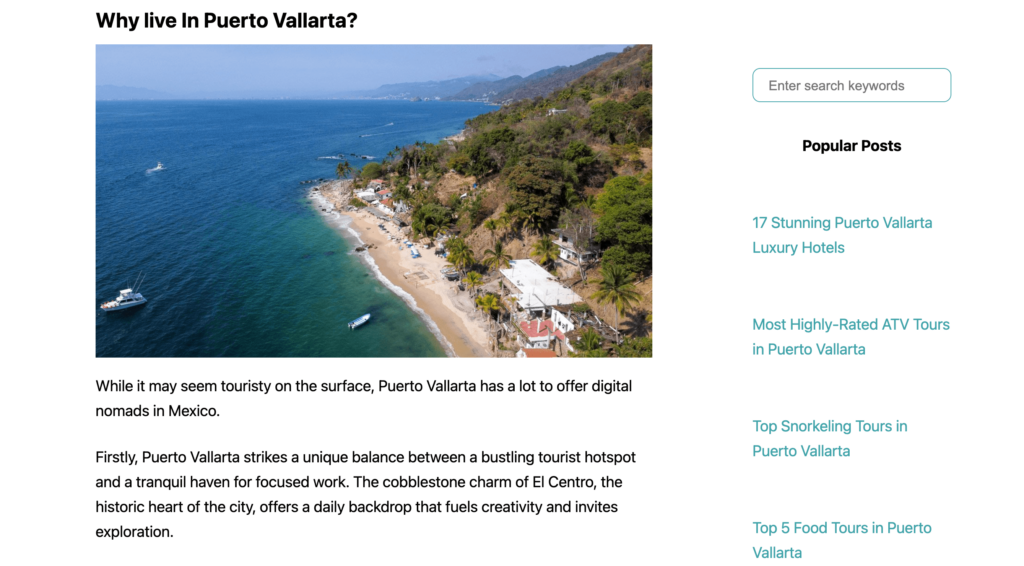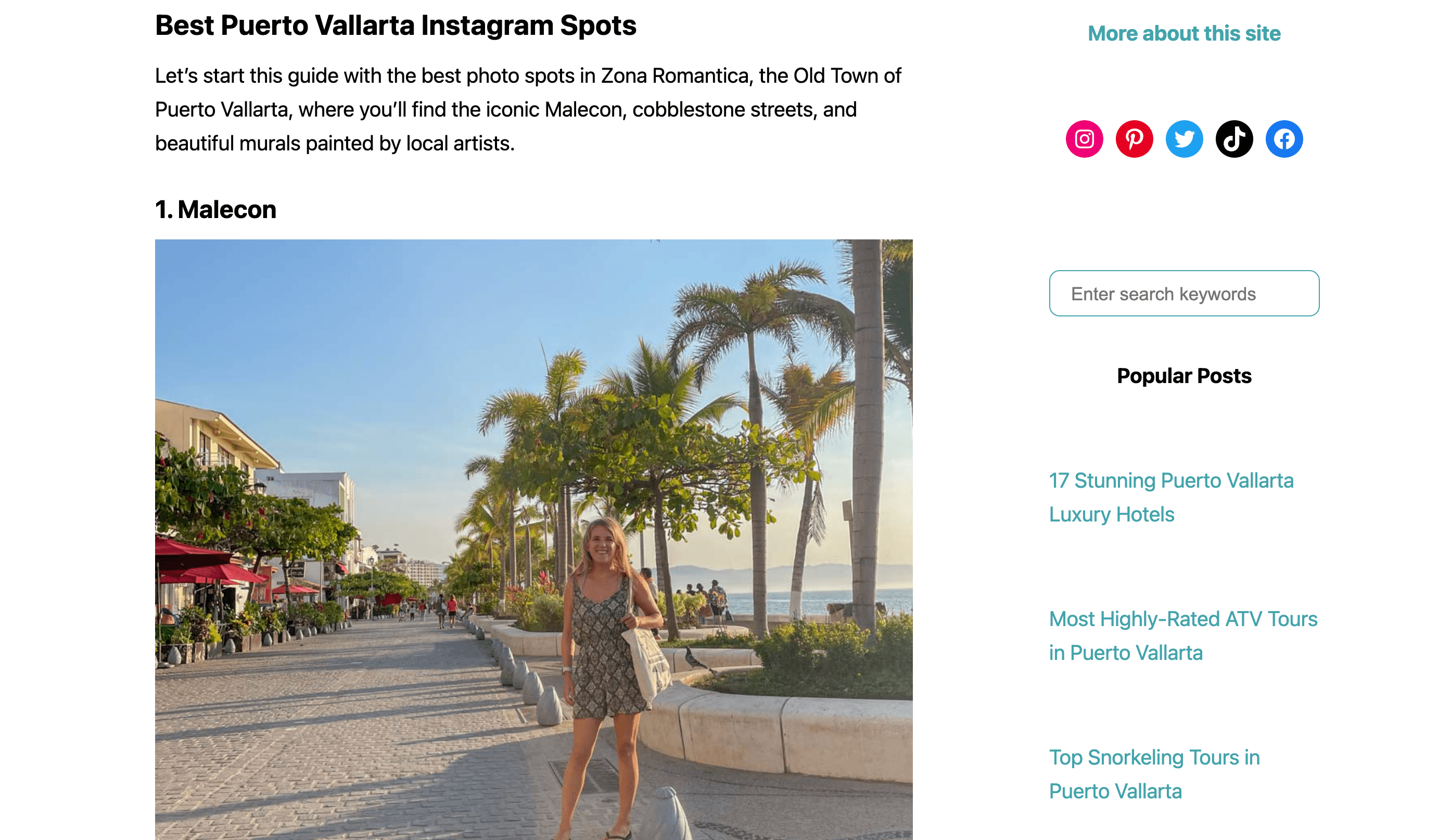How It All Began
I graduated with a degree in International Business and worked as a human resources advisor for the Canadian government for five years. My last position was with Environment Canada in Toronto, which was a typical 9-5, soul-sucking office job.
My journey into remote work began while I was backpacking in 2018, starting my blog as a way to share my travels. It didn’t generate income in the first year, but in 2019, after diving into SEO and affiliate marketing, I started to see some modest earnings.
To supplement my blogging income during my first couple of years of blogging, I worked as a freelance travel writer and curated travel content for an app called Tripscout, thanks to a connection made at a travel blogging conference. Today, my websites — Explore with Lora and Take Me to Puerto Vallarta — are my main sources of income.
I launched Explore with Lora as a platform to share my travels with friends and family, initially not fully believing in the potential to make money from blogging. After connecting with others in the travel blogging community and seeing the success stories, my perspective shifted.

Take Me to Puerto Vallarta, however, is something a little more special. Let’s get into why.

Creating and Maintaining a Niche Site About One City
My decision to create a blog focused on Puerto Vallarta stemmed from my immediate connection with the city upon my moving there during the pandemic. The domain purchase was an instinctive move, reflecting my intuition that it would become a significant part of my life.
The blog has over 140 articles covering a wide range of topics, from hotel reviews to digital nomad guides. My current focus is on developing a content pillar about buying real estate in Puerto Vallarta. With a long list of topics still to cover, I’m not worried about running out of content anytime soon. The goal is to create a comprehensive resource that can be maintained and updated over time.
I monetize my site through ad networks (Mediavine for my main site and Monumetric for the PV site), affiliate marketing, and sponsored posts.
I work with various affiliate programs, including Viator, Discover Cars, SafetyWing, etc. Despite me working with these brands directly through their respective partner programs, I see Travepayouts playing a more significant role in my affiliate marketing strategy. Why? It can be time-consuming managing so many affiliate platforms and chasing down payments from certain affiliates.
I’ve come to recognize the benefits of platforms like Travelpayouts, as the platform offers a wide range of programs under one roof, simplifying the process of managing and integrating affiliate links into my content.
Join the Travelpayouts partnership platform
Join todayMy Top 5 Recommendations
I’ve determined five essential tips that can help anyone start and/or maintain a niche blog:
Start With What You Know
If you have a deep connection or familiarity with a place, even if you’re not an expert right away, that’s a good sign there’s potential for a successful blog.
My connection with Puerto Vallarta started with intuition and grew as I spent more time there, eventually leading me to make it my home. This personal connection can provide unique insights and authenticity to your content.
Determine the “Blog-Ability” of Your City
To determine if a city is “big enough” or has enough tourist appeal to blog about, look at the annual tourist numbers, the search volume for keywords related to the city, and the level of competition from other websites.
For example, Puerto Vallarta, while not a massive city, attracts over 6 million tourists annually, offering a wealth of topics with high search/earning potential and relatively low competition.
The demographic of the visitors (in my case, primarily Americans) can also influence your decision, as certain audiences are more lucrative in terms of ad revenue and affiliate opportunities.
Never Underestimate SEO
Initially, I downplayed the power of SEO — my initial focus was more on sharing my experiences without much thought on how they’d be discovered. Everything changed after I invested in SEO courses. I soon found myself revisiting older posts, updating them with best practices in mind.
And SEO isn’t just about inserting keywords; it’s about creating valuable content that meets the needs of your audience and understanding how to make that content easily accessible to them through search engines.
Thanks to SEO, Take Me to Puerto Vallarta now has around 30k sessions per month and is growing consistently.
Define Your Content Themes
Focus on creating content around 3-5 main themes or pillars relevant to your chosen destination and write as much as you can about those topics. For example, I concentrate on accommodation, things to do, day trips, and expat/digital nomad living guides.

These pillars ensure comprehensive coverage of topics that readers are interested in and searching for, establishing your blog as a go-to resource for that destination.
Maximize Monetization
There are several ways to monetize a niche travel blog. Some of my favorite ways:
- Ad networks: Joining ad networks like Mediavine or Monumetric can provide a steady income based on your site’s traffic.
- Affiliate marketing: Partnering with travel-related affiliate programs (for hotels, tours, travel insurance, etc.) allows you to earn commissions on bookings or purchases made through your links.
- Sponsored posts: Collaborating with brands or tourism boards for sponsored content can be lucrative, especially as your blog grows in authority and audience.
- Creating products: Developing your own products, such as eBooks, courses, or merchandise, can add another revenue stream.
Why You Need a Niche Blog
For an advanced blogger already managing a travel blog, branching out into a niche site can be a strategic move with several benefits.
By concentrating on a narrower topic, you position yourself as an authority in that area. Search engines like Google favor content from recognized experts, which can improve your SEO performance and visibility.
This focused approach allows you to produce content that’s not only rich in detail but also offers unique insights that general travel blogs might miss. This can lead to higher engagement rates and a more loyal following.
Interestingly, niche sites can outperform broader blogs in terms of revenue, even with lower traffic. My niche site generates more income than my main travel blog due to its targeted appeal. With a targeted audience, affiliate marketing, sponsored content, and ad revenue can be more effective because you’re offering highly relevant products or services.
Last but not least, when you live in or have extensive experience with your niche’s location, content creation becomes significantly easier.
You have firsthand access to the latest information, trends, and hidden gems that can make your content stand out. This on-the-ground perspective reduces the need for extensive research and ensures your posts are both authentic and up-to-date.
If you’re starting a new site, choose a niche that you’re passionate about and where you have or can develop expertise. Your enthusiasm for the subject will keep you motivated, and your growing knowledge will enhance the value of your content.
Conduct thorough research to ensure there’s a demand for content in your chosen niche. Look for gaps in the existing content landscape that your blog can fill.
Apply the lessons learned from your main blog to your niche site from the start. Use keyword research to guide your content creation, ensuring your posts are optimized to attract organic traffic.
Remember that building a successful niche site takes time and dedication. Be prepared for a gradual build-up of traffic and income (but it should grow faster than your first site).
Creating a niche site can be a rewarding extension of your travel blogging journey, offering new opportunities for growth and monetization.






